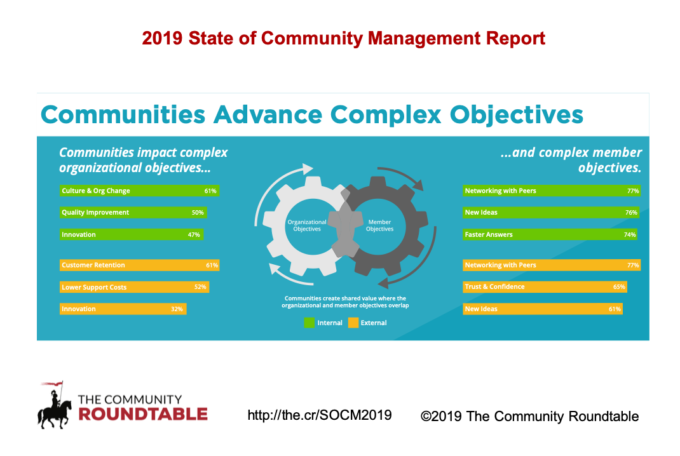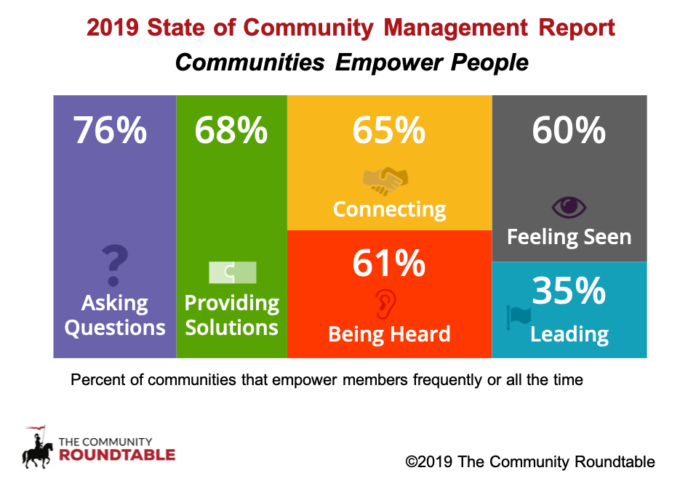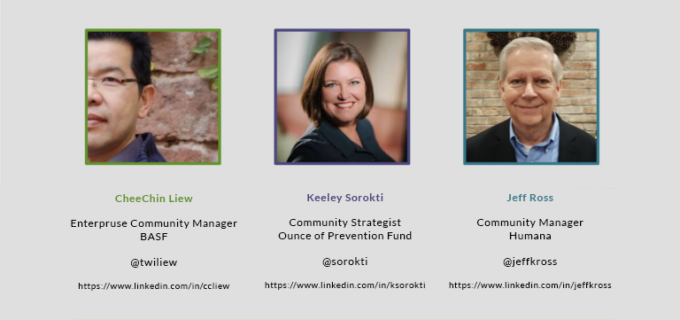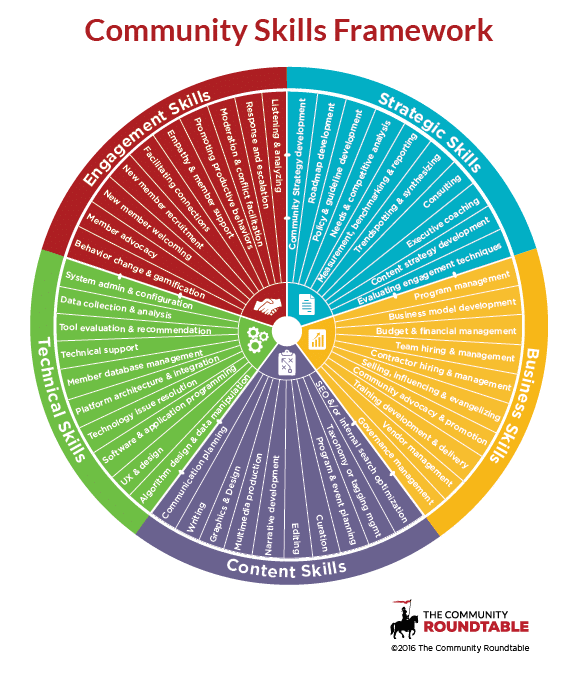In the last month, thanks to the worldwide Caronavirus pandemic, organizations across the globe have been thrust suddenly into organizational-wide digital transformation. They are discovering what many experts have been saying for years – that the tools are the easy part.
Most organizations today have the technology that enables new ways of working – but they haven’t used it to work in new ways.

Our 2019 State of Community Management research shows that internal communities are powerful agents of culture change, quality improvement, and innovation. For employees, communities help them network with peers, find new ideas, and get faster answers – all improving productivity. Together this has compounding value for organizations as each individual changes their own behavior to work more effectively.

More fundamental than that, however, is that communities can empower employees in a whole host of ways. In empowering people, leadership becomes distributed – moving opportunity sensing and decisions out to the edges making organizations more adaptive, resilient, and innovative. That is something that will give those organizations that have strong community programs an advantage now, as the entire organization needs to change and adapt to quickly changing circumstances.
Those organizations that have actively pursued changing the way they engage, manage and lead their workforce have invested in community management. These teams are responsible for:
- Creating an environment that encourages and rewards new work behaviors, through ecosystem and infrastructure design, training, coaching, and creating community programming structures for different work processes.
- Helping managers across organizations become community managers as communications become more networked and transparent.
- Measuring and tracking progress so that executives understand the value of working in new ways – and how that value is generated.
- Working with both IT and business groups to integrate, adapt, and use the available tools in the most effective ways.
- Showing and modeling how to work differently.
- Creating a center of excellence that includes a community of community owners who are showing people across the organization how to learn, engage, and lead in a new way – with less control and more collaboration.
Enterprise community management – that which is focused on engaging employees vs customers – is a complex role and to do well, requires a team of professionals. These community teams share an orientation for networked communications and tend to specialize in one or more of the five skill families that we’ve defined in the Community Skills Framework: Engagement, Content, Technical, Business (program management), or Strategy.
I have long said that the future of all management is community management and enterprise community teams are the ones working to scale and extend this competency across their organization. Managing communities requires a very different orientation than traditional management – it is a lot more about inspiring, facilitating, coaching, and leading than it is about project and task management. Instead of putting a box around work tasks and roles, it’s about building a trellis off of which people can grow in directions that energize them while doing so within the boundaries of work that needs to be done. It is about helping employees self-manage and self-direct in ways that create more value for everyone.
The Community Roundtable has many great resources for those of you who are looking to add these capabilities, including:
- Free access to TheCR Library’s Engagement Resource Bundle – use code: GODIGITAL
- Free webinar, podcasts and more info on our blog.
- 2020 Community Careers and Compensation Research
- On-Demand Internal Community Management Fundamentals Course, which is also available for enterprise licensing.
- Membership in TheCR Network, which will give you access to all of the above and weekly programming, support from our community team, and access to peers and discussions.
Lastly, I recommend following these three internal community leaders, who have been working in this space for over a decade and generously share their expertise and perspective on social media channels. On Twitter at CheeChin Liew, Keeley Sorokti, and Jeff Ross.



